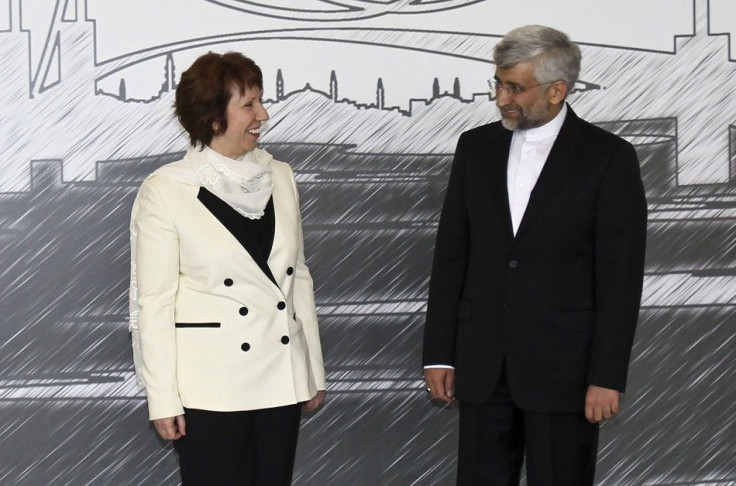Iran, P-5 Plus 1 Group Plan More Talks On Nuclear Program

Discussions of Iran's nuclear program between the Islamic Republic on the one side and the so-called P-5 Plus 1 group -- Britain, China, France, Russia, and the U.S., plus Germany -- on the other side appear to have gone reasonably well in Istanbul on Saturday.
The strongest evidence for this interpretation is that the parties agreed to conduct another round of talks in Baghdad on May 23. In contrast, about 15 months passed between their meeting in January of last year and their meeting on Saturday.
There is other evidence, as well.
Catherine Ashton, the European Union's representative for foreign affairs and security policy, called the discussions constructive and useful, BBC News reported.
And Saeed Jalili, Iran's Supreme National Security Council secretary, described the talks as being based on cooperation and very successful, BBC News said.
The crux of the issue between the P-5 Plus 1 Group and Iran is that most members of the former believe the Islamic Republic's nuclear program encompasses a military aim, while the latter contends the program is centered on power generation.
No concessions were made by either side at these talks -- they were all about mood, BBC News correspondent Jonathan Head noted in an instant analysis.
The atmosphere in previous meetings has often been colored by angry rhetoric, and little agreement even over what they should be talking about, Head wrote. This time the Iranian negotiator, Saeed Jalili, and his interlocutor, Catherine Ashton, spoke almost with one voice.
However, coverage of the event by Iran's state-owned Press TV indicated the comparative goodwill may have had its limits.
The first round of negotiations was held on Saturday morning in Istanbul, after which Iran started bilateral talks with all the members of the P5+1 group except the United States, and the second round of comprehensive negotiations was held in the afternoon, Press TV reported.
Sources close to the Iranian delegation said Iranian negotiators rejected multiple requests from the US for bilateral negotiations both after the first round of talks and before the beginning of the second round, Press TV said.
Still, the U.S. appeared not to hold a grudge over this reported rebuff, as BBC News quoted a White House representative as praising Iran's positive attitude at the meeting.
© Copyright IBTimes 2024. All rights reserved.












